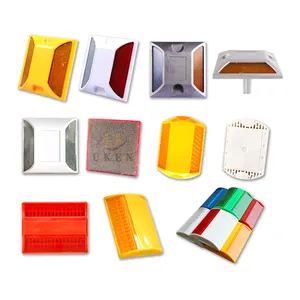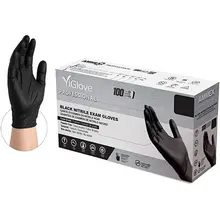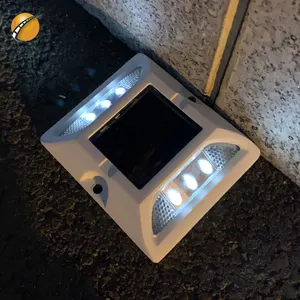What is Road Studs Pricing Guide
Road studs are small, yet essential components in the realm of traffic safety and infrastructure. These simple but effective devices are designed to provide clear, durable, and reliable road markings that guide and warn drivers of lane boundaries, obstructions, and other critical information on the road surface. They are commonly used on highways, city streets, and rural roads to enhance the visibility of the road layout and to increase safety for all road users.
Road studs operate on the principle of retroreflection, which means they reflect light back to the source with minimal scattering. This property allows them to remain visible under various lighting conditions, including low visibility environments. They are typically embedded directly into the pavement and come in various designs, each catering to specific requirements and preferences. The core user base for road studs includes government entities responsible for maintaining road safety, private contractors involved in road construction and maintenance, and businesses with large private road networks.
The pricing of road studs is influenced by several factors such as material composition, quality of manufacturing, and the features they offer, such as waterproofing and different levels of reflectivity. Bulk purchasing or long-term procurement contracts can lead to discounts or preferred pricing from suppliers. As a crucial element in promoting road safety, road studs serve as a valuable investment for any entity looking to maintain a high standard of traffic management and safety.
Types of Road Studs Pricing Guide
The pricing of road studs can vary significantly based on their type, application, and material composition. Here is an overview of some common types:
-
Aluminum Road Studs: These are lightweight yet durable road studs made from aluminum. They are often used on highways and larger roads due to their high reflectivity and longevity.
-
Solar Road Studs: Incorporating photovoltaic cells, these self-sustaining road studs charge during the day and illuminate without external power sources. They are ideal for remote areas or where wiring is impractical.
-
Ceramic Road Studs: Known for their high durability and resistance to environmental factors, ceramic road studs are suitable for both urban and rural roads. Their robustness makes them suitable for areas with heavy traffic.
-
Plastic Road Studs: Typically used for temporary traffic control or in areas where the risk of impact is low. Plastic road studs are also often used for marking lanes during road construction or maintenance.
-
Steel Road Studs: These are less common but offer extreme durability. Steel road studs are used in areas requiring significant resistance to heavy traffic or in specialized applications where a long service life is crucial.
How to choose Road Studs Pricing Guide
Selecting the right road studs for your business involves considering several factors that relate directly to their intended use and the specific characteristics of the area where they will be installed. Here's what you should consider:
-
Material: The durability and visibility of road studs vary depending on their material. Options like aluminum alloy, PC (polycarbonate), or ABS (acrylonitrile butadiene) cater to different needs; for instance, aluminum alloy studs might be more appropriate for high-traffic areas due to their strength.
-
Application: Consider whether the studs will be used for traffic safety on highways, roadway safety in urban areas, or as decorative markers in parking lots. Different applications may call for different types of road studs based on their specific function.
-
Color and Design: The color should be chosen based on the local environment and the level of visibility required. A design that complements the area's aesthetic while providing necessary safety functions is key.
-
Feature: Features such as being flexible, waterproof, or having high visibility should align with the primary purpose of the road studs in your context.
By carefully evaluating these factors in relation to the types of road studs available, you can make an informed decision that meets both your business requirements and your clients' needs.
About Road Studs Pricing Guide on Alibaba.com
Alibaba.com stands out as an exceptional source for businesses seeking reliable suppliers of road studs. With an extensive array of options available from numerous global suppliers, Alibaba.com facilitates finding the right type of road stud that meets specific project requirements without the hassle of sifting through countless products individually.
The platform's commitment to connecting buyers with reputable suppliers ensures that each transaction is conducted with a focus on trust and quality assurance. Alibaba.com's Trade Assurance service further reinforces buyer confidence by safeguarding payments until order fulfillment is confirmed.
Alibaba.com's user-friendly interface simplifies the process of searching for products by allowing buyers to filter results based on material composition, application purpose, color options, features like waterproofing or high visibility, and more. This level of customization helps businesses source exactly what they need efficiently. With Alibaba.com’s dedication to empowering small and medium-sized enterprises worldwide through comprehensive online trade solutions, businesses can confidently procure road studs that contribute to enhancing traffic safety while also fulfilling their logistical requirements effectively.
Common FAQs for Road Studs Pricing Guide
What materials are road studs typically made from?
Road studs are often made from durable materials such as aluminum, stainless steel, or plastic, with some using eco-friendly options like recycled plastic or polycarbonate.
How do I determine the appropriate size and type of road stud for my project?
The size and type of road stud should be determined based on the specific requirements of your project, such as traffic load and speed conditions. Larger studs with robust construction are suitable for high-traffic areas, while smaller studs may suffice for low-traffic zones.
Can road studs be used in both wet and dry conditions?
Yes, road studs are designed to be highly visible and functional in various weather conditions. However, choosing the right type of stud is crucial for performance in wet or dry conditions.
Are there different colors available for road studs?
Yes, road studs come in various colors including white, yellow, red, blue, green, black, and amber to enhance visibility during different times of the day or in specific environments.
What is the expected lifespan of a road stud?
The lifespan of a road stud varies depending on its material and the level of traffic. However, high-quality materials like stainless steel or tempered glass offer longer durability.
How are road studs installed?
Road studs are typically secured to the road surface using an epoxy adhesive and can be either glued on or drilled into place depending on the design and material of the stud.
Can road studs be customized to display specific messages or logos?
Yes, some road studs can be customized with messages or logos depending on the manufacturer's capabilities. This can be an effective way to incorporate branding or safety information into the road surface.
What safety standards do road studs have to meet?
Road studs must meet local and international safety standards which include regulations for visibility (e.g., reflective or illuminated), durability, and performance under various conditions like wet or dry roads.
Are there eco-friendly options for road studs?
Yes, some manufacturers offer eco-friendly road studs made from recycled materials or designed to minimize environmental impact through energy-efficient production methods.
How can I ensure that the road studs I purchase meet regulatory standards?
To ensure compliance, verify that the road studs are certified to meet regional or international regulations which can include specifications for visibility, durability, and safety standards.
































 浙公网安备 33010002000092号
浙公网安备 33010002000092号 浙B2-20120091-4
浙B2-20120091-4